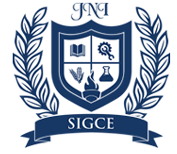Established in the year 1993, Computer Engineering Department of Smt. Indira Gandhi College of Engineering is one of the oldest institution under Mumbai University. Being in close vicinity to Thane Belapur Industrial area, Mindspace and DhirubhaiAmbani Knowledge City (DAKC), it is well connected for transport and being amidst the industrial belt has additional advantage of industrial exposure.
Department has spacious and well-equipped laboratories with state-of-the-art technologies. The backbone of the department arethe well qualified and experienced faculty members who are always ready to extend a helping hand to our students. The students are guided all year round by assigning mentors who look into their overall development.
Along with imparting quality education, the department also aims at the overall development of students by providing various opportunities in the form of technical paper presentations, industry expert talks, technical festivals (TechFest), sports events, cultural activities and much more.
For keeping the students up-to-date with the industry requirements, various clubs such as Machine Learning Club, IoT club, Coding Club etc. are conducted on a regular basis throughout the year. Department also celebrates its Department day “Techfiesta” enthusiastically where students from all years come together and participate in quizzes, mind games, cultural activities, teacher’s interaction, fun and food.
We encourage students for higher studies and extensive training sessions both for soft skills as well as for technical expertise conducted by the Training and Placement Cellassist students in getting 100 percent placement in the best of companies.
Computer Department treats everyone as a family and celebrate all the big festivals together. This strong bonding helps not only in building a positive atmosphere but also encourages students to spread their wings and thing out-of-the-box.
Vision :
- To be recognized in the industry and society as an excellent center of education in the field of computer engineering.
Mission :
- To provide an encouraging environment for teaching learning process.
- To empower Computer Engineering knowledge of the students to meet the needs of industry and society.
- To build overall personality of the students through technical, social and holistic activities.
Program Educational Objectives :
- Successful Career: Graduate will analyze the requirements of the problem in computer engineering, understand the technical feasibility, design and provide efficient engineering solutions with ethical values.
- Lifelong learning: Graduates will engage in lifelong learning by doing higher studies and adapt for ever changing industrial and social demands.
- Social Awareness: To train the graduates for a career and work through values & social concern.
Program Specific Outcomes :
Graduates will be able to:
- Apply the principles of mathematics, data structure and algorithm to solve the problem.
- Understand the functionality of hardware and software of computer system and its applications.
- Participate in planning and implement solution through leadership and professional ethics.
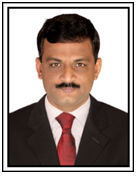
Dr. Kishor T. Patil ( ME., PhD )
Email: kishor.patil@sigce.edu.in
Department of Computer Engineering was started in 1993. The Department is well established with number of well qualified and experienced faculty members.
Dr.Kishor T. Patil who has a total academic experience of 28+ years has been heading the Department of Computer Engineering since 17+ years. He has published/presented many research papers in national and international conferences/journals. He also owns patent to his credit. He believes in team spirit and motivates staff members to work for the overall growth of the students. The activities under his leadership like technical clubs, webinars, industry experts talk, mentor sessions, paper presentations, training and placement activities, industrial visits, department day celebrations, festival celebrations, sports and cultural activities not only hones their technical skills but also grooms their overall personality.Under his leadership, the department has been successfully able to meet vision-mission of college and department year after year.
He is assisted by highly qualified and dedicated staff members who make every effort of tuning the young minds to make them globally competitive.
Career Opportunities :
As technology grows in leaps, the opportunity for expanding the field of Computing develops even more rapidly. The Computer Engineering Course gives a sound in the fundamentals of computing and an understanding of the underlying engineering principles. There is an unlimited scope for a computer engineers. Career opportunities include designing, developing and maintaining the software systems for a different range of applications such as Networking, user interfaces, banking, databases, forecasting, World Wide Web support, research and development and also there are unlimited self employment opportunities in this exciting field. Experts from industries are frequently invited to deliver seminars on topics on various subjects, to keep the students abreast with the latest developments in the industry.
Computing professionals might find themselves in a variety of environments in academia, research, industry, government, private and business organizations – analyzing problems for solutions, formulating and testing, using advanced communications or multi-media equipment, or working in teams for product development.
| Sem III | |
|---|---|
| Sr. No | Course Name |
| 1 | Mathematics for Computer Engineering |
| 2 | Discrete Structures and Graph Theory |
| 3 | Analysis of Algorithm |
| 4 | Computer organization & Architecture |
| 5 | Open Elective |
| 6 | Analysis of Algorithm Lab |
| 7 | Computer Organization and Architecture Lab |
| 8 | Full Stack Java Programming |
| 9 | Entrepreneurship Developmen |
| 10 | Environmental Science for Engineers |
| Sem IV | |
|---|---|
| Sr. No | Course Name |
| 1 | Computational Theory |
| 2 | Database Management System |
| 3 | Operating System |
| 4 | Multidisciplinary minor |
| 5 | Open Elective |
| 6 | Database Management System Lab |
| 7 | Operating System Lab |
| 8 | Multidisciplinary minor |
| 9 | Mini Project |
| 10 | Business Model Development |
| 11 | Design Thinking |
| Sem V | |
|---|---|
| Sr. No | Course Name |
| 1 | Theoretical Computer Science |
| 2 | Software Engineering |
| 3 | Computer Network |
| 4 | Data warehousing & Mining |
| 5 | Department Level Optional Course- 1 |
| 6 | Probabilistic Graphical Models |
| 7 | Internet Programming |
| 8 | Advance Database Management System |
| 9 | Software Engineering Lab |
| 10 | Computer Network Lab |
| 11 | Data ware housing & Mining Lab |
| 12 | Business Comm. & Ethics |
| 13 | Mini Project: 2 A |
| Sem VI | |
|---|---|
| Sr. No | Course Name |
| 1 | System Programming & Compiler Construction |
| 2 | Cryptography & System Security |
| 3 | Mobile Computing |
| 4 | Machine Learning |
| 5 | Department Level Optional Course -2 |
| 6 | Internet of Things |
| 7 | Digital Signal & Image Processing |
| 8 | Quantitative Analysis |
| 9 | System Programming & Compiler Construction Lab |
| 10 | Cryptography & System Security Lab |
| 11 | Mobile Computing Lab |
| 12 | Machine Learning Lab |
| 13 | Skill base Lab course : Cloud Computing |
| 14 | Mini Project Lab: 2B |
| Sem VII | |
|---|---|
| Sr. No | Course Name |
| 1 | Artificial Intelligence |
| 2 | Big Data Analytics |
| 3 | Department Level Optional Course-3 |
| 4 | Machin Vision |
| 5 | Quantum Computing |
| 6 | Natural Language Processing |
| 7 | Department Level Optional Course-4 |
| 8 | Augumented and virtual reality |
| 9 | Block chain |
| 10 | Information Retrival |
| 11 | Institute Level Optional Course-1 |
| 12 | Product Lifecycle Management |
| 13 | Reliability Engineering |
| 14 | Management Information System |
| 15 | Design of Experiments |
| 16 | Operation Research |
| 17 | Cyber Security and Laws |
| 18 | Disaster Management & Mitigation Measures |
| 19 | Energy Audit and Management |
| 20 | Development Engineering |
| 21 | Artificial Intelligence Lab |
| 22 | Big Data Analytics Lab |
| 23 | Department Level Optional Course-3 Lab |
| 24 | Machin Vision Lab |
| 25 | Quantum Computing Lab |
| 26 | Natural Language Processing Lab |
| 27 | Department Level Optional Course-4 Lab |
| 28 | Augumented and virtual reality Lab |
| 29 | Block chain Lab |
| 30 | Information Retrival Lab |
| 31 | Major Project 1 |
| Sem VIII | |
|---|---|
| Sr. No | Course Name |
| 1 | Distributed Computing |
| 2 | Department Level Optional Course -5 |
| 3 | Deep Learning |
| 4 | Digital Forensic |
| 5 | Aplied Data Science |
| 6 | Department Level Optional Course -6 |
| 7 | Optimization in Machin Learning |
| 8 | High Performance Computing |
| 9 | Social Media Analytics |
| 10 | Institute Level Optional Course -2 |
| 11 | Project Management |
| 12 | Finance Management |
| 13 | Entrepreneurship Development and Management |
| 14 | Human Resource Management |
| 15 | Professional Ethics and CSR |
| 16 | Research Methodology |
| 17 | IPR and Patenting |
| 18 | Digital Business Management |
| 19 | Environmental Management |
| 20 | Distributed Computing Lab |
| 21 | Department Level Optional Course -5 Lab |
| 22 | Deep Learning Lab |
| 23 | Digital Forensic Lab |
| 24 | Aplied Data Science Lab |
| 25 | Department Level Optional Course -6 Lab |
| 26 | Optimization in Machin Learning Lab |
| 27 | High Performance Computing Lab |
| 28 | Social Media Analytics Lab |
| 29 | Major Project 2 |
We at Computer Engineering department believe in collective efforts, research, creativity and innovation. We allow students to choose project domain which in turn help to society also.
| BE Major Project List: 2025-26 | |
|---|---|
| Group No. | Title of Project |
|
G1
|
Labwall – Configurable Firewall Solution for College Computer Laboratories
|
|
G2
|
Network-Based Intrusion Detection System (IDS)
|
|
G3
|
Path Navigator Robot
|
|
G4
|
Ai- Powered Skincare and Skin Disease Detection system with smart Recommendation.
|
|
G5
|
Smart Keti : A Conversational Agent for Farmers
|
|
G6
|
Hear2See – AI Powered Sound Assistant For Hearing Challenged
|
|
G7
|
Automated Textnote Generator using NLP
|
|
G8
|
Yamuna River Width Analysis And Depletion Prediction
|
|
G9
|
AI aided Solar Mapping to Customer Requirements
|
|
G10
|
StudySync – AI-powered Productivity App for Exam Preparation
|
|
G11
|
Early detection and tracking of Pneumonia using Deep Learning
|
|
G12
|
Sign Gestures to generated sentence reader using deep learning
|
|
G13
|
InvisiFlaw-Smart Fabric Inspection Using Unsupervised Learning
|
|
G14
|
TenderDekho – Smarter Access to Tenders using NLP
|
|
G15
|
LawGyan – A Conversational AI for legal help
|
|
G16
|
VeriTrust – AI Powered Decentralized Review System for the Gig Economy
|
|
G17
|
Detection and Empowerment of learning disability using Generative AI
|
|
G18
|
Organ Donation Registry in Blockchain with AI-Powered Organ matching
|
|
G19
|
TechStart : A Conversational AI as Your Smart starting point to learn computers and code
|
|
G20
|
Conversation AI for Aasha Workers with Code Switching Facility
|
|
G21
|
Crowd Management Model using YOLO
|
|
G22
|
AI based Traffic Violation Detection System
|
| BE Major Project List: 2024-25 | |
|---|---|
| Group No. | Title of Project |
|
G1
|
SpineSense – A Real Time Posture Monitor
|
|
G2
|
Art nexus :- An app bringing all form of art together on a platform for better business
|
|
G3
|
AR Storytelling Application
|
|
G4
|
SAHANA: A chatting application inclusive to Visually challenged , Hearing and Speech impaired
|
|
G5
|
Blockchain Borders: Enhancing national security through blockchain technology
|
|
G6
|
Digital Gram-Panchayat Services
|
|
G7
|
Early Landslide Detection, Notification and Rescue management.
|
|
G8
|
Finding Missing Person using Generative Adversarial Network for Facial Changes with Time
|
|
G9
|
Conversational Legal Advisor for Real Estate
|
|
G10
|
ASDTech: AI Techniques for Autism Spectrum Disorder Detection
|
|
G11
|
MedConnect: Connecting Primary Health Centers to the District Hospital For Consultation
|
|
G12
|
Predicting Player Performance for the Indian Cricket Team Based on Historical data Using ML
|
|
G13
|
Travel assistant for visually impaired
|
|
G14
|
Forensic Face Sketch Construction through Voice Input and Recognition
|
|
G15
|
CareCognit: An App to Aid Dementia Patients
|
|
G16
|
Automated Lab manual generation using Natural Language Processing
|
|
G17
|
FIR and Evidence Portal on Blockchain
|
|
G18
|
VOCALBRAILLE : An innovative speech driven display for visually impaired
|
|
G19
|
English learning App for Hindi users
|
| BE Major Project List: 2023-24 | |
|---|---|
| Group No. | Title Of Project |
|
G1
|
SpineSense – A Real Time Posture Monitor
|
|
G2
|
Art nexus :- An app bringing all form of art together on a platform for better business
|
|
G3
|
AR Storytelling Application
|
|
G4
|
SAHANA: A chatting application inclusive to Visually challenged , Hearing and Speech impaired
|
|
G5
|
Blockchain Borders: Enhancing national security through blockchain technology
|
|
G6
|
Digital Gram-Panchayat Services
|
|
G7
|
Early Landslide Detection, Notification and Rescue management.
|
|
G8
|
Finding Missing Person using Generative Adversarial Network for Facial Changes with Time
|
|
G9
|
Conversational Legal Advisor for Real Estate
|
|
G10
|
ASDTech: AI Techniques for Autism Spectrum Disorder Detection
|
|
G11
|
MedConnect: Connecting Primary Health Centers to the District Hospital For Consultation
|
|
G12
|
Predicting Player Performance for the Indian Cricket Team Based on Historical data Using ML
|
|
G13
|
Travel assistant for visually impaired
|
|
G14
|
Forensic Face Sketch Construction through Voice Input and Recognition
|
|
G15
|
CareCognit: An App to Aid Dementia Patients
|
|
G16
|
Automated Lab manual generation using Natural Language Processing
|
|
G17
|
FIR and Evidence Portal on Blockchain
|
|
G18
|
VOCALBRAILLE : An innovative speech driven display for visually impaired
|
|
G19
|
English learning App for Hindi users
|
| Date of Event | Name of Event | Link |
|---|---|---|
| 8/10/2025 | Scope and Era of InternetofThings(IOT) | Click Here |
| 30/9/2025 | Linux Installation Party | Click Here |
| 29/9/2025 | MASTERING AI TOOLS FOR INNOVATION | Click Here |
| 16/9/2025 | Proprietary Software vs. FOSS | Click Here |
| 12/8/2025 to 13/8/2025 | LLMs,RAG and AI Agents: A Practical Workshop | Click Here |
| 11/8/2025 | Mic & Metaphor | Click Here |
| 10/8/2025 | AGENTIC AI | Click Here |
| 7/8/2025 | Alumni Interaction | Click Here |
| 03/10/2023 to 06/10/2023. | Experts Talk on AI Innovations | Click Here |
| 8th January 2025 | Experts Talk on AI Innovations | Click Here |
| 1st October 2024 | Almni Interaction | Click Here |
| 5th September 2024 | Ganesh Chaturthi Celebration | Click Here |
| 8th Aug 2024 | Alumni Meet | Click Here |
| 19th April 2024 | Industrial Visit | Click Here |
| 13th March 2024 | Tech Debate | Click Here |
| 13th March 2024 | Web Designing Using Figma | Click Here |
| 9th February 2024 | Cash of Words | Click Here |
| 30th January 2024 and 31st January 2024 | Branching Brilliance: A GitHub Expedition | Click Here |
| 24th January 2024 | Cash of Words | Click Here |
| 2nd March 2024 and 3rd March 2024 | DevIgnite Hackathon – 2024 | Click Here |
| 3rd October 2023 to 6th October 2023 | VALUE ADDED PROGRAM ON AI POWERED OPPORTUNITIES | Click Here |
| 3rd October 2023 to 6th October 2023 | AI Techies Club | Click Here |
4 days workshop on Neural Networks and Deep Learning
Computer department organized 4 days workshop on Neural Networks and Deep Learning from 17th September 2019 to 20th September 2019. This workshop conducted by our students Hrushikesh Shukla (BE Comps) and Tanmay Pachpande (TE Comps), which cover up the contents of Introduction to Neural networks, Working of Neural Networks, Deep Learning concepts like Convolutional Neural Networks (CNN), Recurrent Neural Networks (RNN), etc. , learn to program the Neural Networks and optimize them and given a small project for self learning. Also conducted a quiz on that session and given a digital participation certificate through email to participants.




Five Days Workshop on “Full Stack Development”
A Full Stack Development Workshop was Organized by T.E. and S.E. students of Computer Department. It was held from 26th August to 30th August in the college hours .The workshop was inaugurated by higher authorities of the college. The Workshop comprised of practical sessions on HTML(Day 1), CSS (Day 2), Bootstrap (Day 3), Javascript (Day 4 and Day 5). A final Kahoot quiz was conducted on the last day of the workshop and based on its evaluation, cash prize was given to the winner and the runner-up. The student’s response to this workshop was appreciable. They got quite acquainted with the front end technologies throughout this workshop.
Alumni Interaction Mr. Tanmay Chitnis [Alumni 2012 pass out], Software Development Engineer at Expedia Group, Seattle
This session was a very helpful and informational for the students as they came to know about the most recent trends of the new technologies and frameworks that are being used in the industries and how to balance between regular academic studies and preparation of placements. He recommended to include extra certification or internship in resume, work on open source technologies, emphasize on Practical Knowledge, Learning during Experiments and Viva’s, making projects and Hands-on Trainings as these lead to a much deeper understanding of concepts and bring in self-confidence. He concluded saying there is no shortage of jobs and career options.

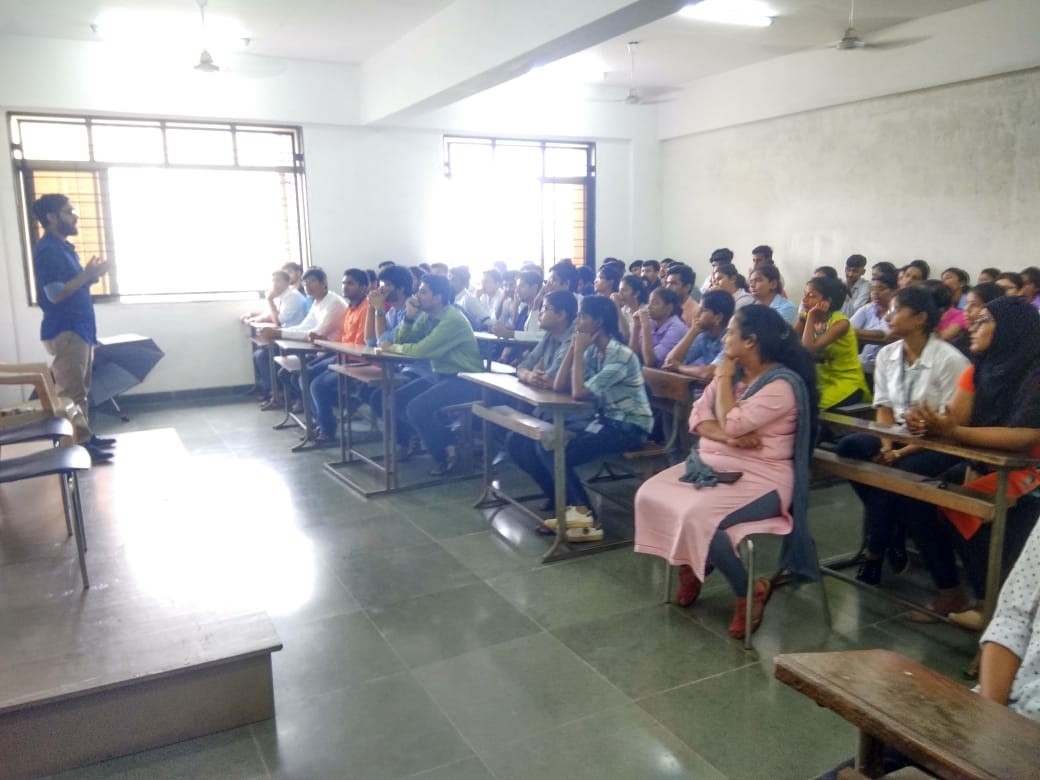
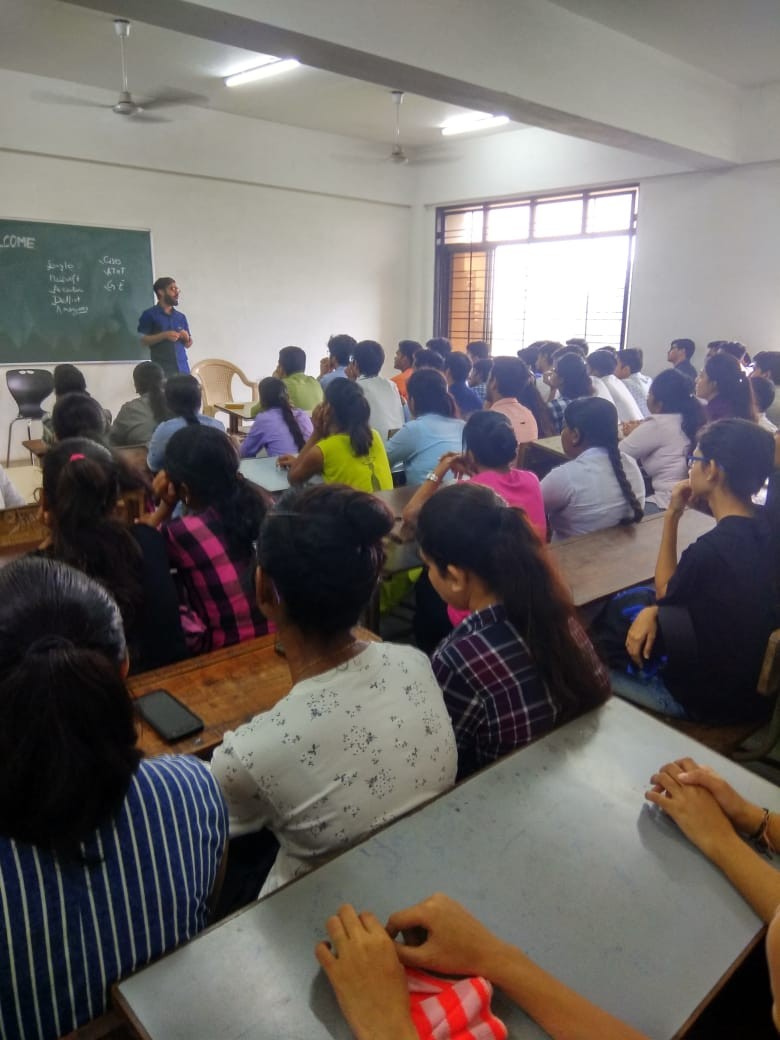
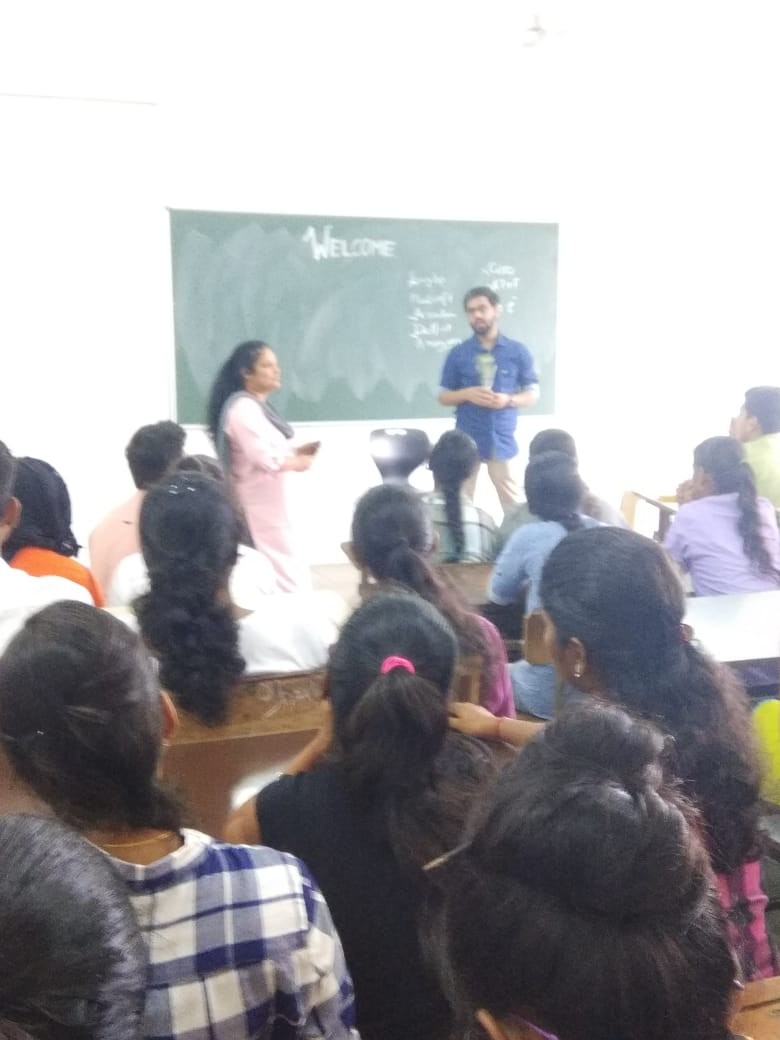
Expert Guest Lecture On Digital Signal Processing(DFT) by Prof. Sarita Bopalkar; Prof. Kirti Suryawanshi
Mrs. Sarita Bopalkar mam given brief introduction to the concept of Digital Signal Processing and Explain the concept discrete fourier transform with its properties
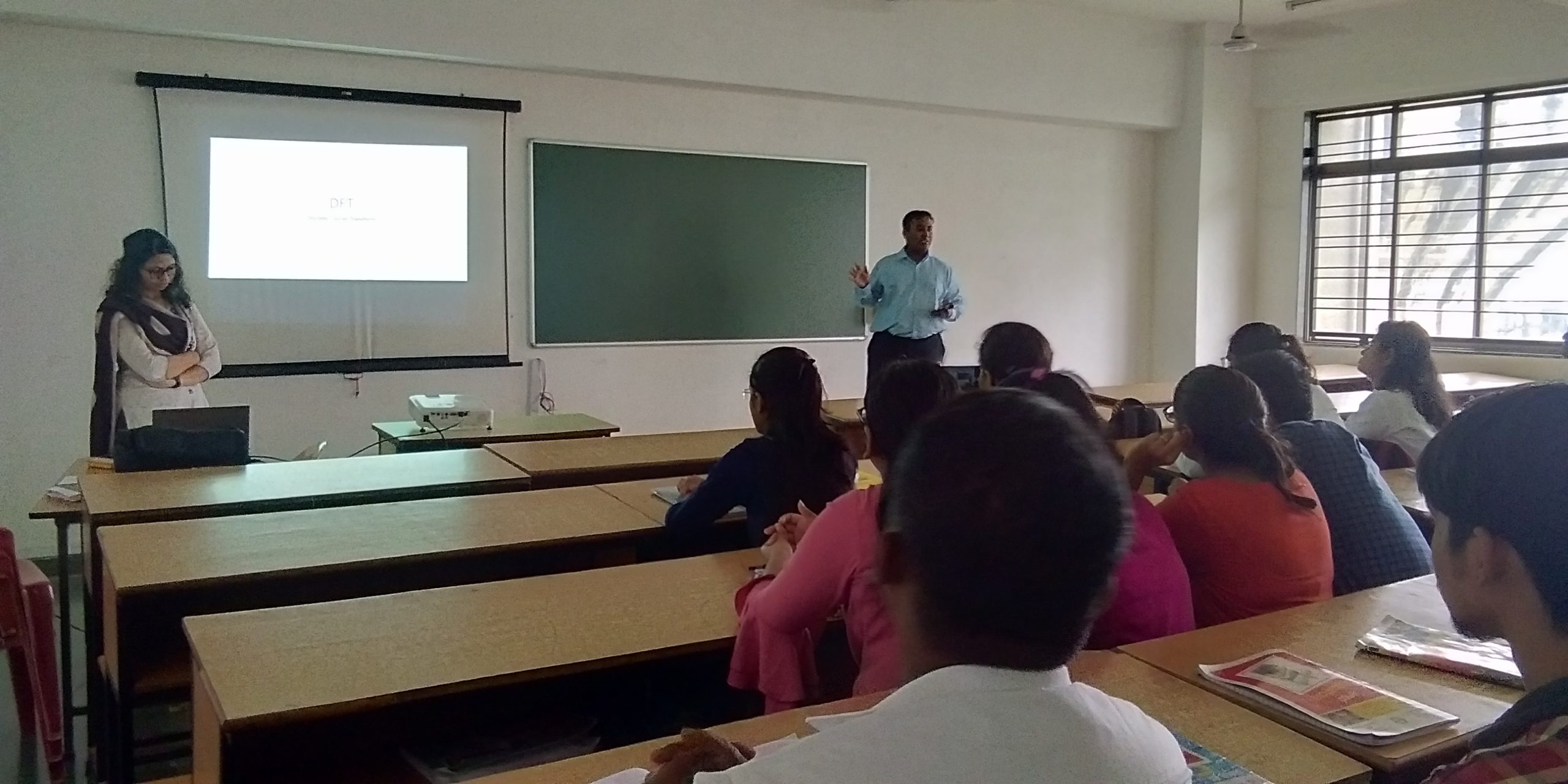
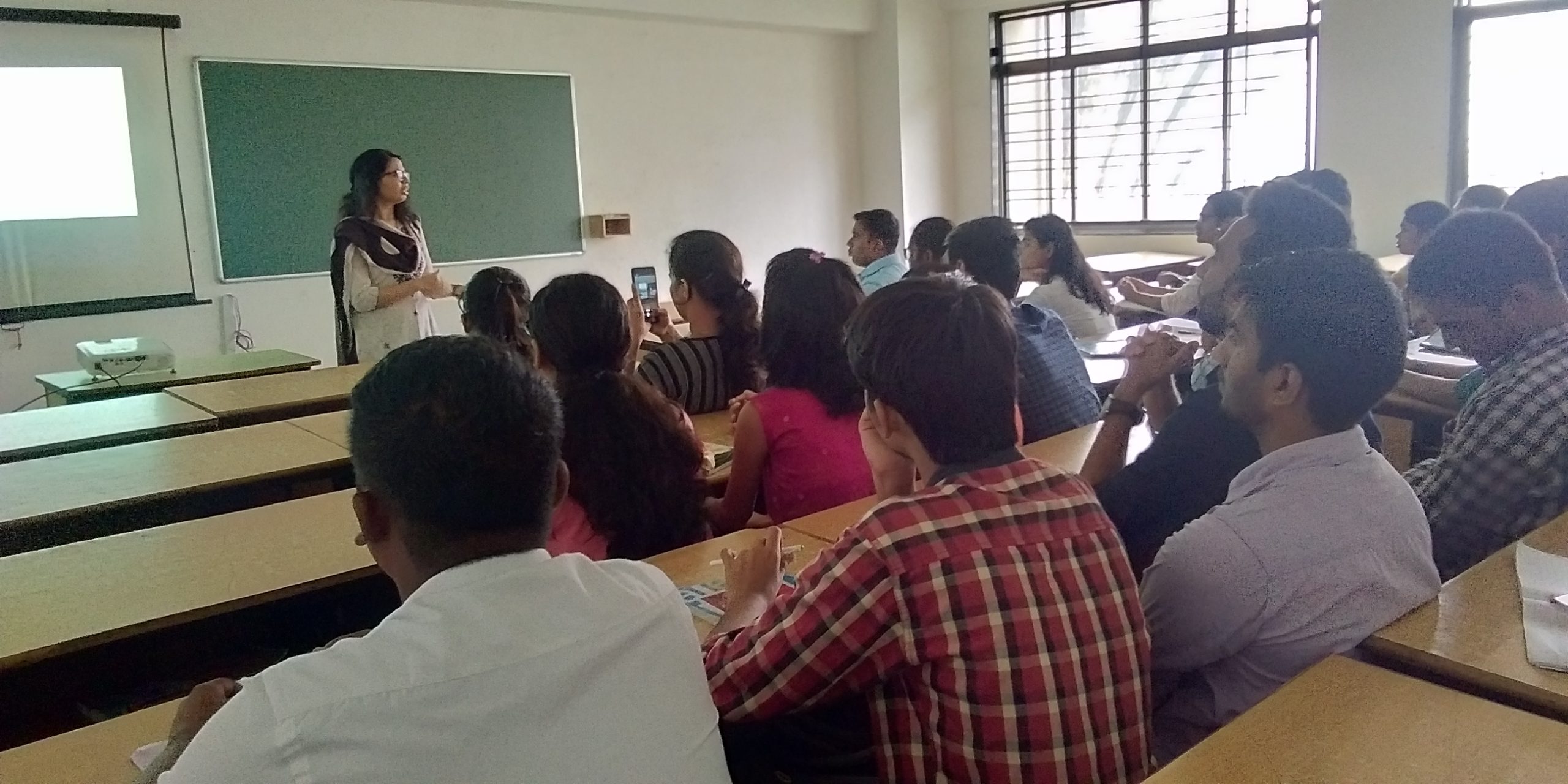
Big Data & Analytics – Hadoop Workshop
Our department has organized one day workshop on “Big Data & Hadoop” for SE/TE/BE students. This workshop consists of 2 sessions.First session conducted by Dr. Tripathy Amiya who covered on big data & analytics , hadoop tools, MapReduce with interactive way. Second session conducted by Prof.Sana Shaikh who had taken hands on training on hadoop installation & MongoDB installation & different commands. Students are appreciated the session & requested for one more session.
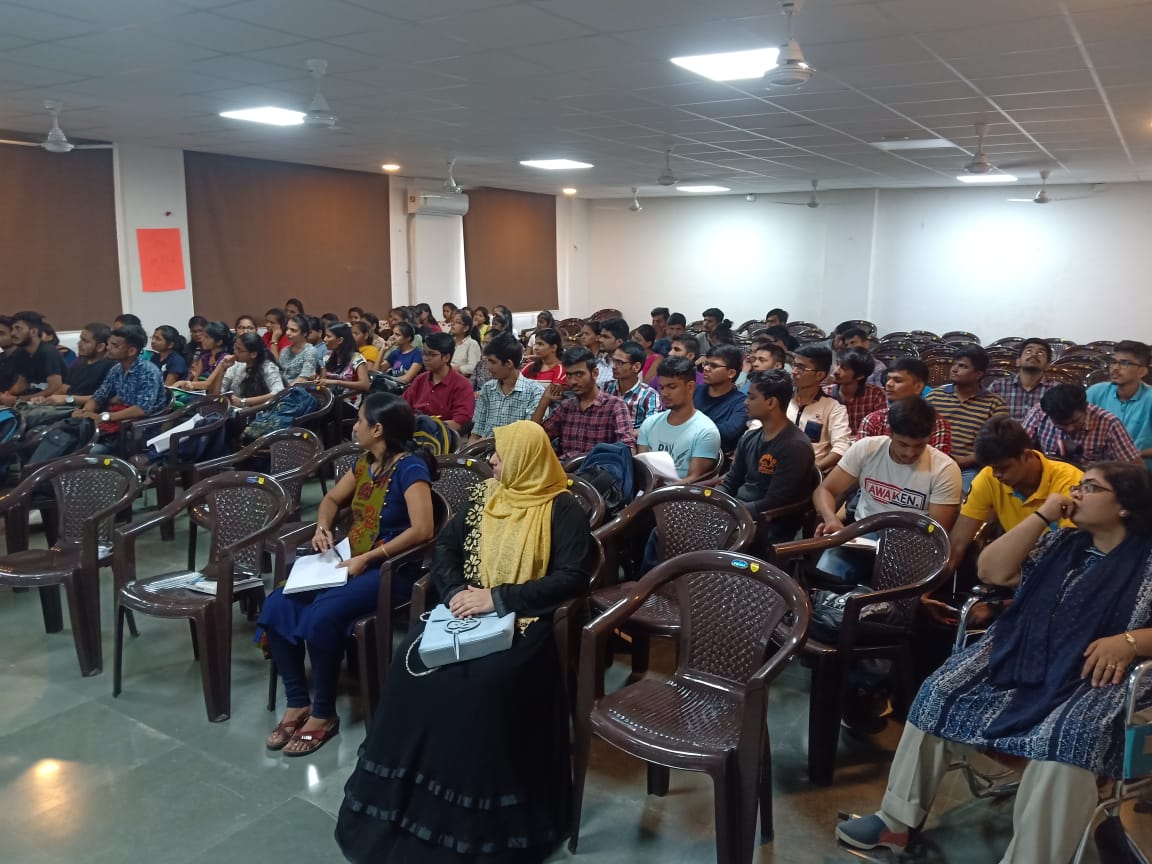

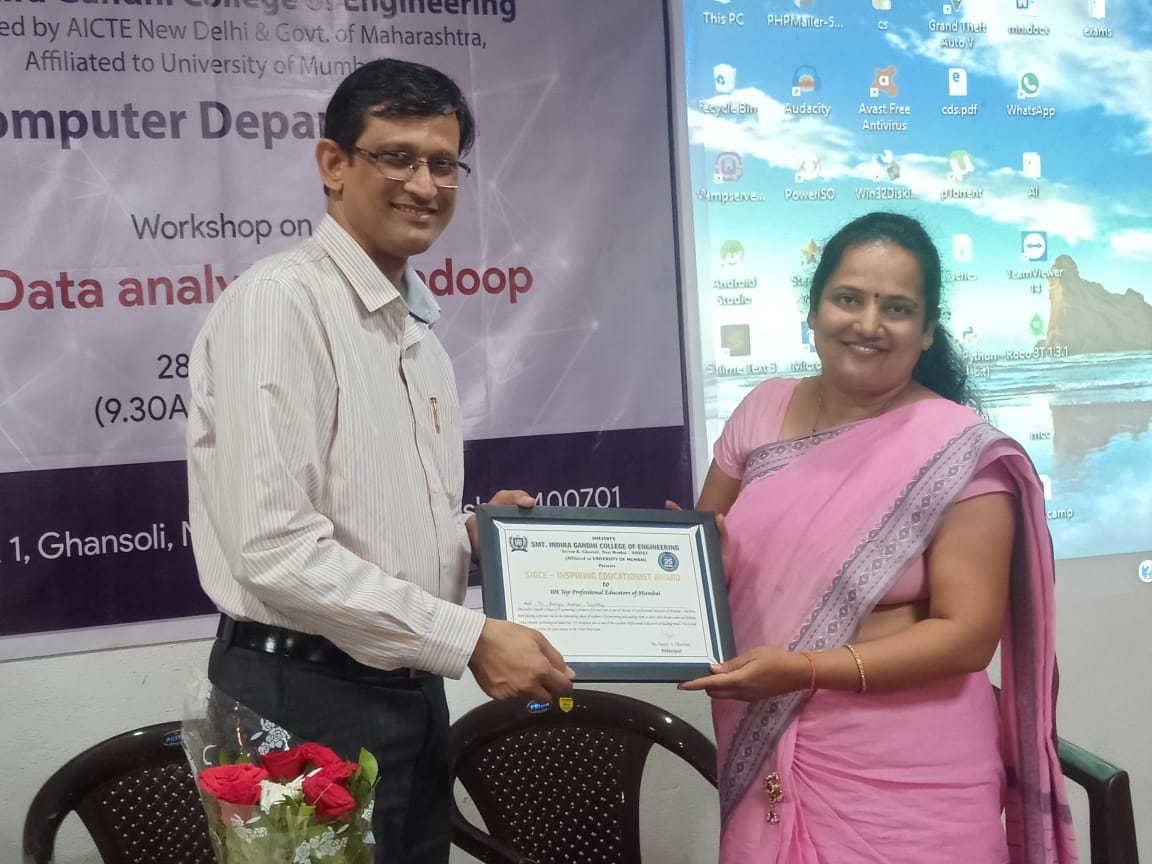
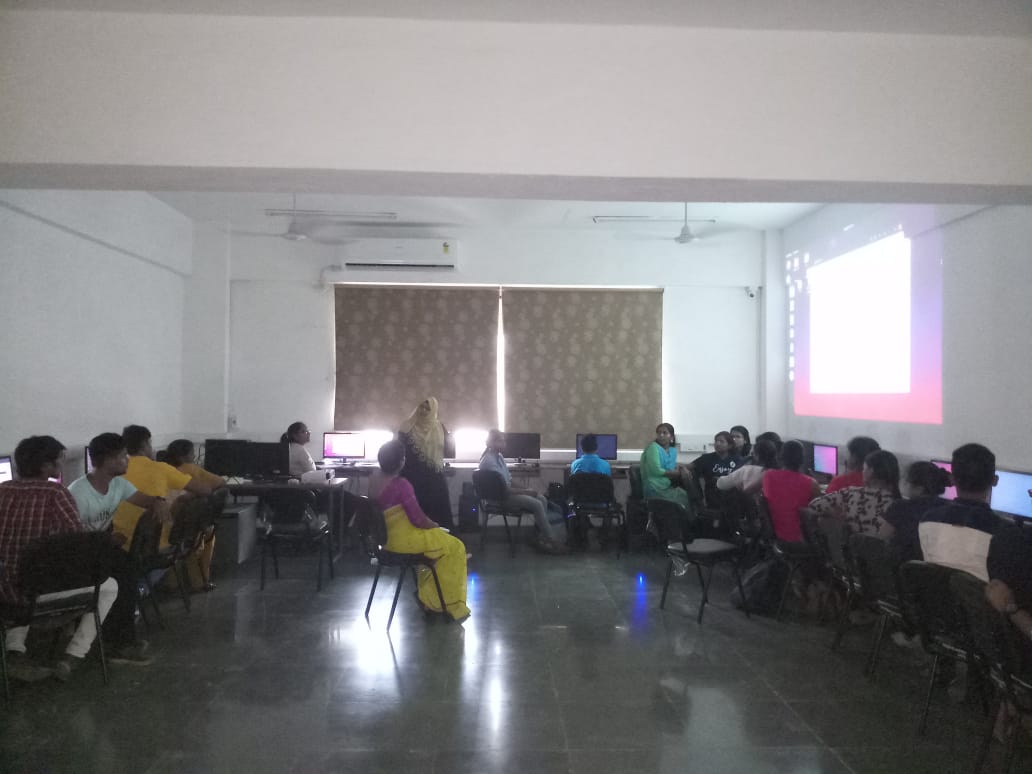
Tea Party with Placed students
Our department has organized tea party for placed students with support of higher authorities. All the authorities were present for this occasion. Placed students are congratulated, awarded with certificate and given Pen as a token which is printed with college name. Key persons and students are shared their views. All the placed students are guided and share the small tips to SE and TE comp students how to face the campus interview.

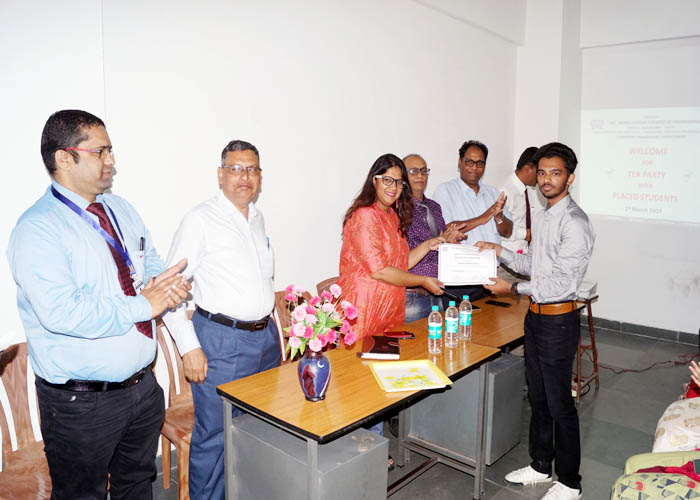
2 days workshop on MACHINE LEARNING IN PYTHON TENSORFLOW
The resource persons conducted a workshop on machine learning in python using TensorFlow. The students were introduced to the concept of deep learning. The primary software tool of deep learning is TensorFlow. It is an open source artificial intelligence library, using data flow graphs to build models. It allows developers to create large-scale neural networks with many layers. TensorFlow is mainly used for: Classification, Perception, Understanding, Discovering, Prediction and Creation.
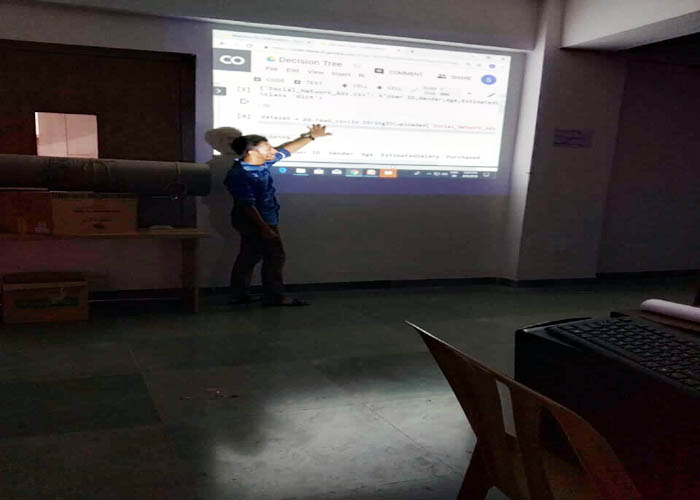
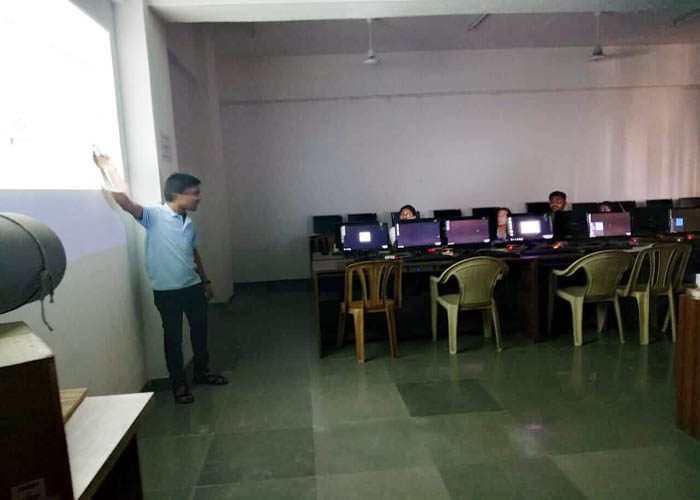
Seminar on Data Science with R Language
R is a programming language and software environment for statistical analysis, graphics representation and reporting. R was created by Ross Ihaka and Robert Gentleman at the University of Auckland, New Zealand, and is currently developed by the R Development Core Team.
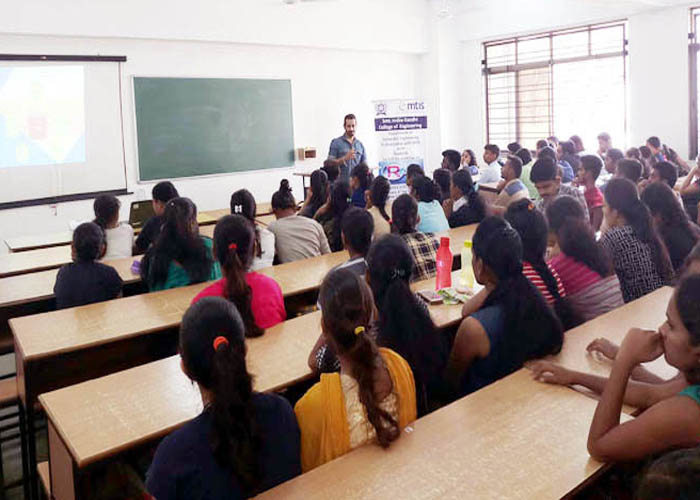
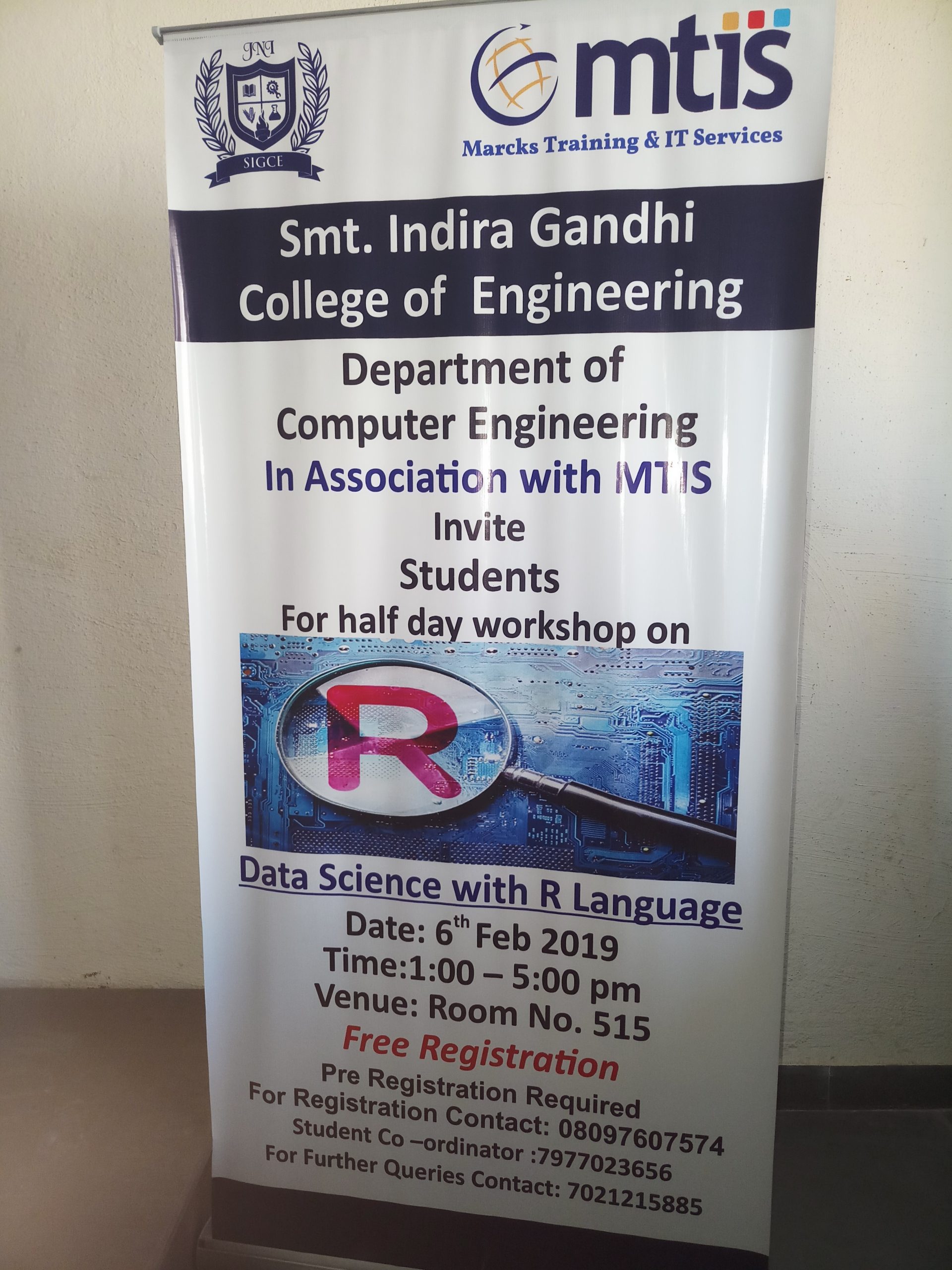
HMI Exhibition Contest
Our department has organized HMI Exhibition Contest with support of higher authorities. All the authorities were present for this occasion. A group of 7-8 students did survey on various topics (like ATVM-Automatic Ticket Vending Machine) suggested by our faculty. All the groups visited various sectors according to their survey topic and they figured out the daily required things that people use ,through survey on the basis of usage. According to the survey, students and staff elected the best survey according to the criteria.
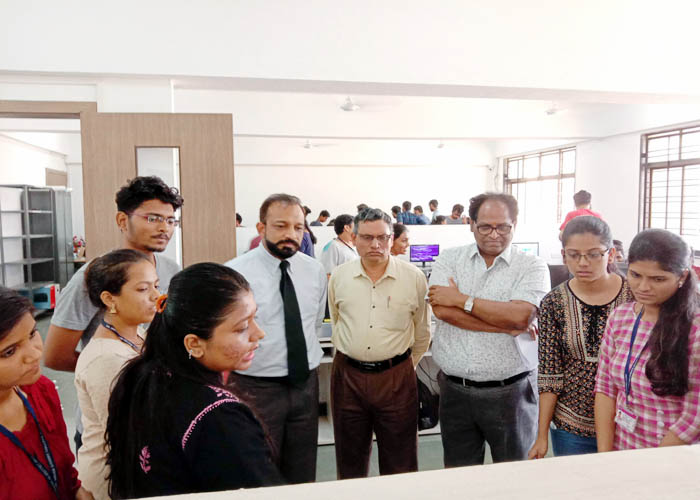
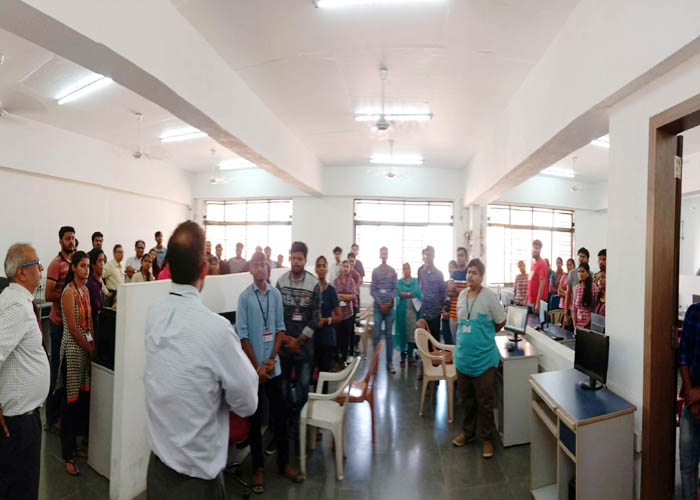
Hands on Training on IoT
Students are aware of the basics of the IoT technology. They get the knowledge of home automated system. Also students get aware of IoT embedded systems and microcontrollers, Working with Big Data, Raspberry Pi interface for IoT.
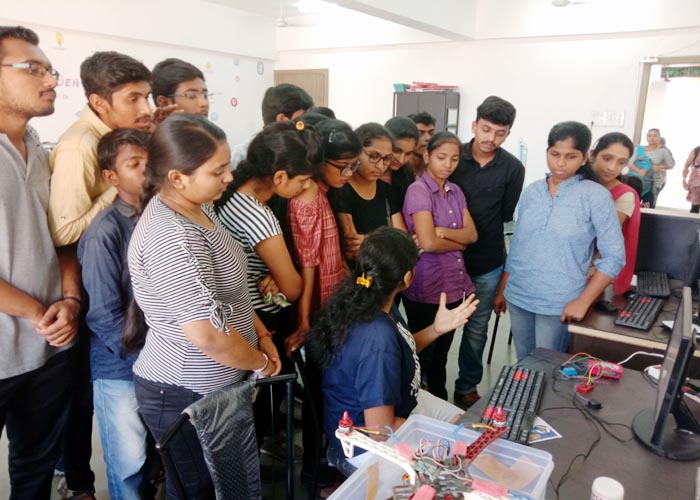
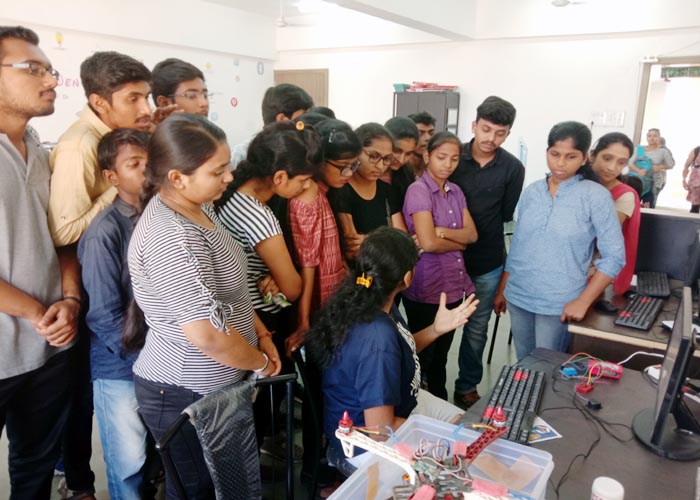
Women’s Day Celebration
Students of SE / TE/ BE Comp participated in the celebration. All the authorities of college were present for the celebration and given speech for the importance women’s day celebration. Also felicitated and given certificates to the students.
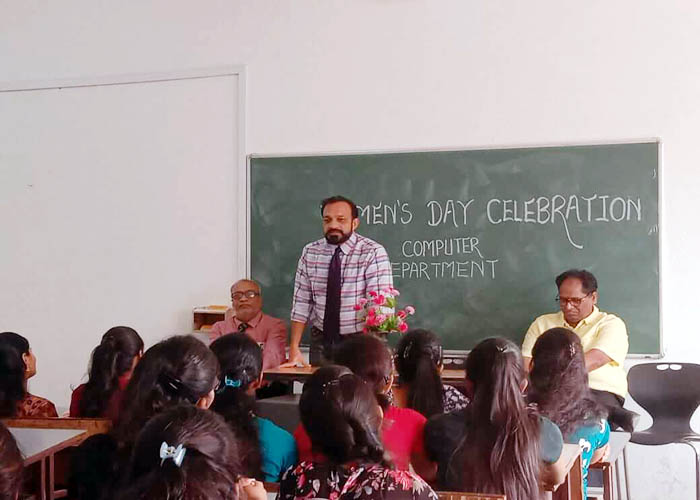
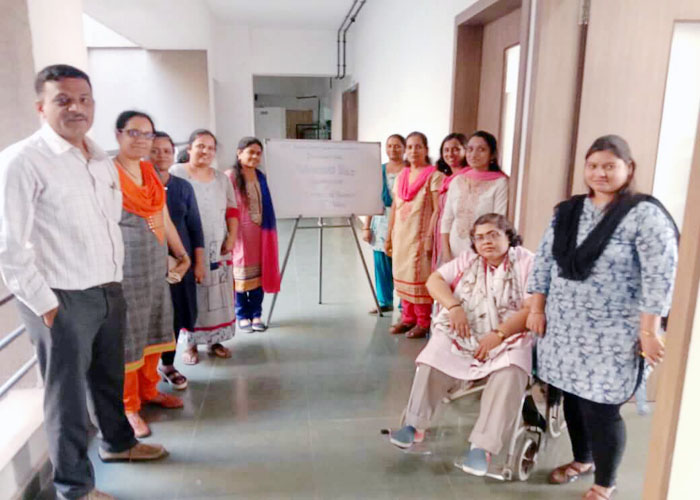
Club Inauguration (Coding Club , Machine Learning Club, IOT club)
Our department has inaugurated various clubs such as Machine Learning Club, Coding Club and Internet of Things Club (IoT) in the presence of all the higher authorities including trustee members. These clubs are specified its objectives and outcomes. This is going to be achieved through various activities, expert lectures, quiz test and hands-on- training depends on activity needs.
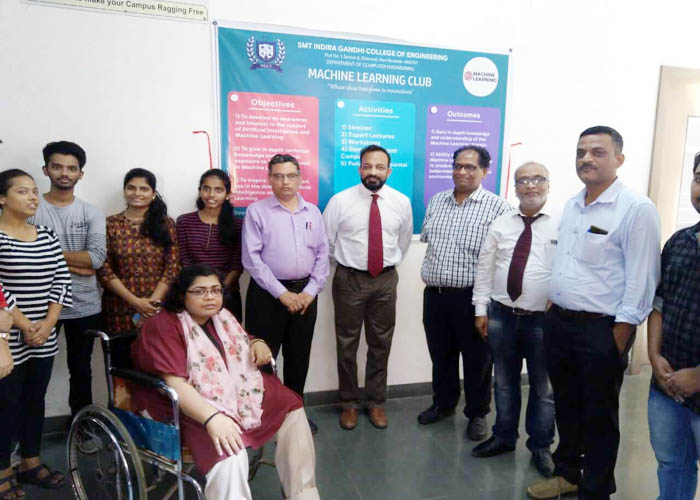
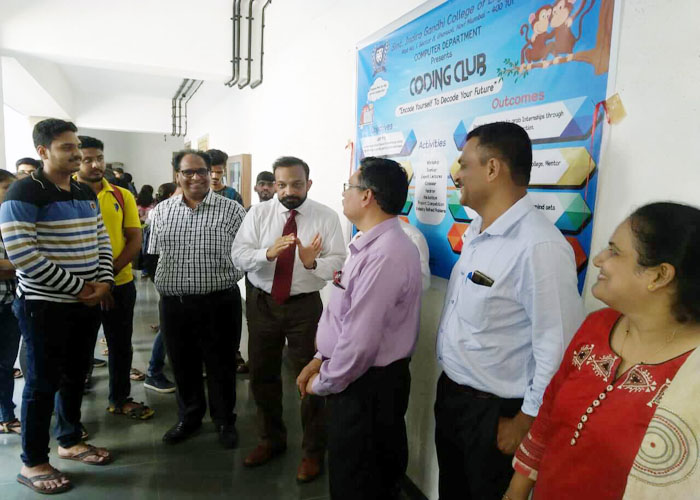
3 days workshop on Full Stack Web Development
Students of SE/BE Comp participated and taken a workshop on HTML, CSS, Nodejs, MongoDB, NPM and Online project deployment. They elaborate how to make projects using above mentioned topics.
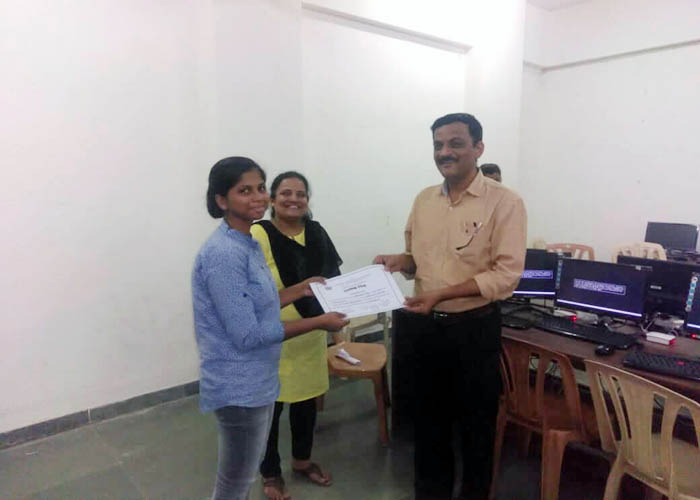
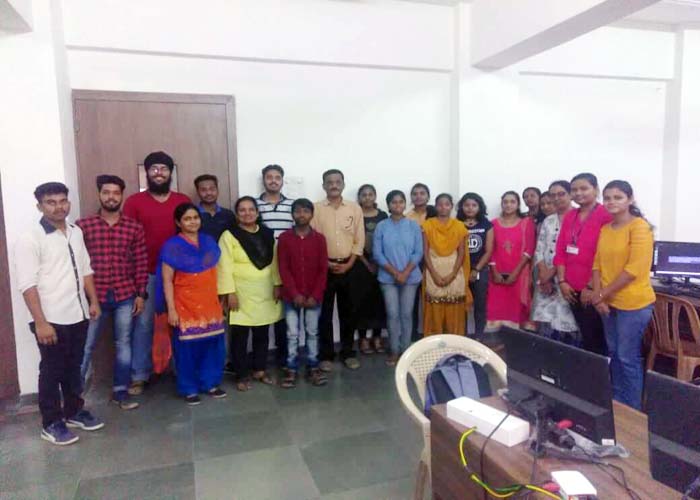
Seminar on INTRODUCTION TO MACHINE LEARNING AND ITS APPLICATIONS and Quiz Test
Students of BE Computer conducted a seminar on machine learning and its applications. A quiz test on machine learning was conducted following the seminar.
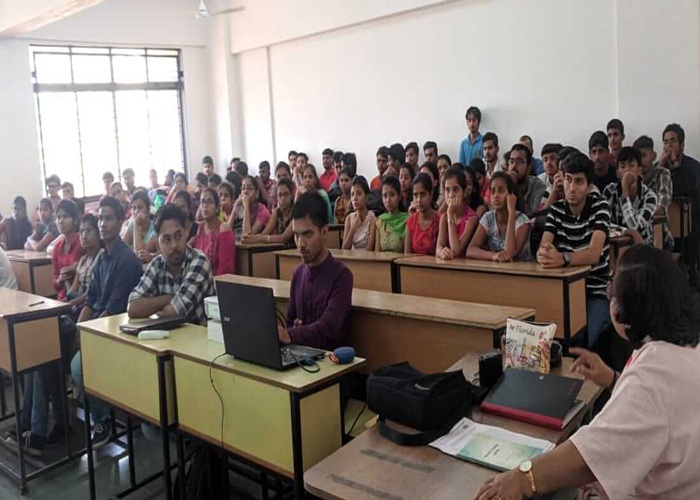
Youth Development Activity
Motivate the students to take part in extera cariculam activities.


Technical Seminar (IIHT)
Introduced the new area in technology, Future scope in IT Industry. Increase the knowledge in networking Profession.
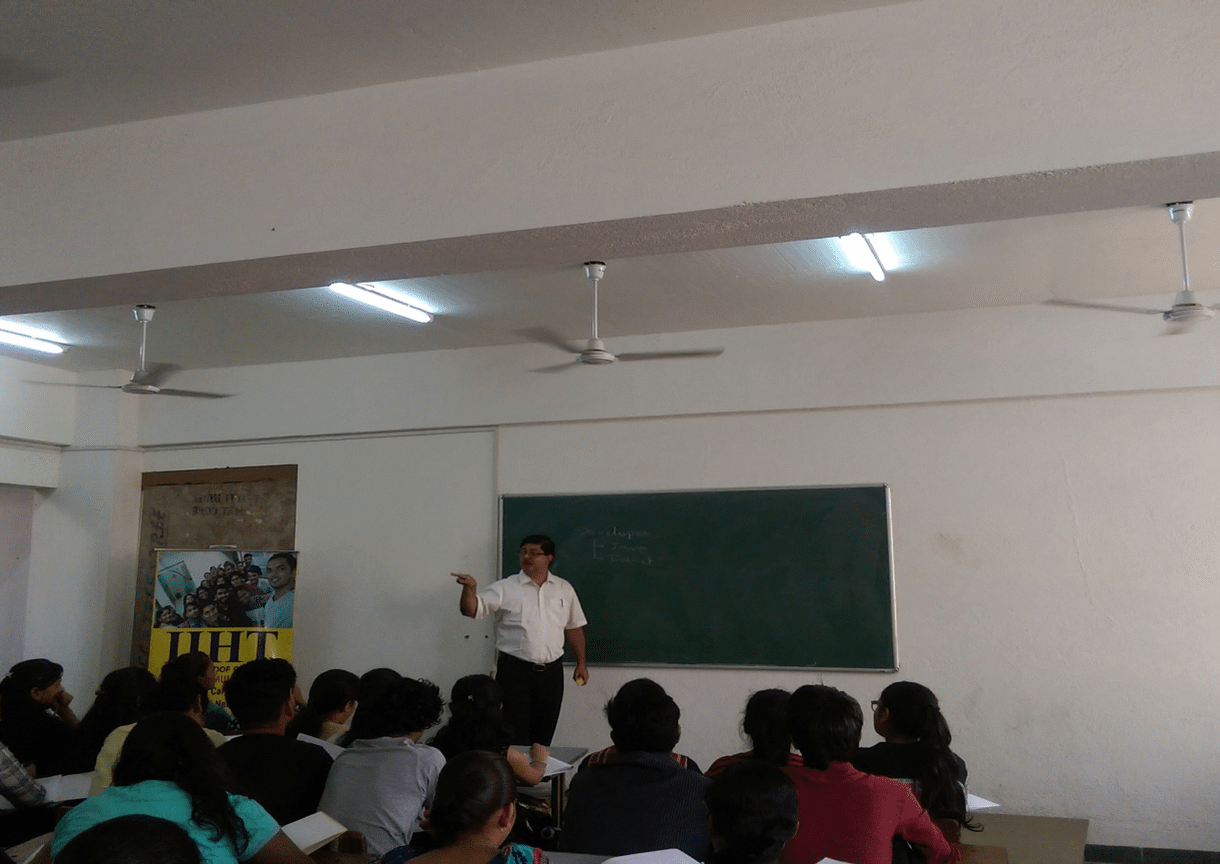
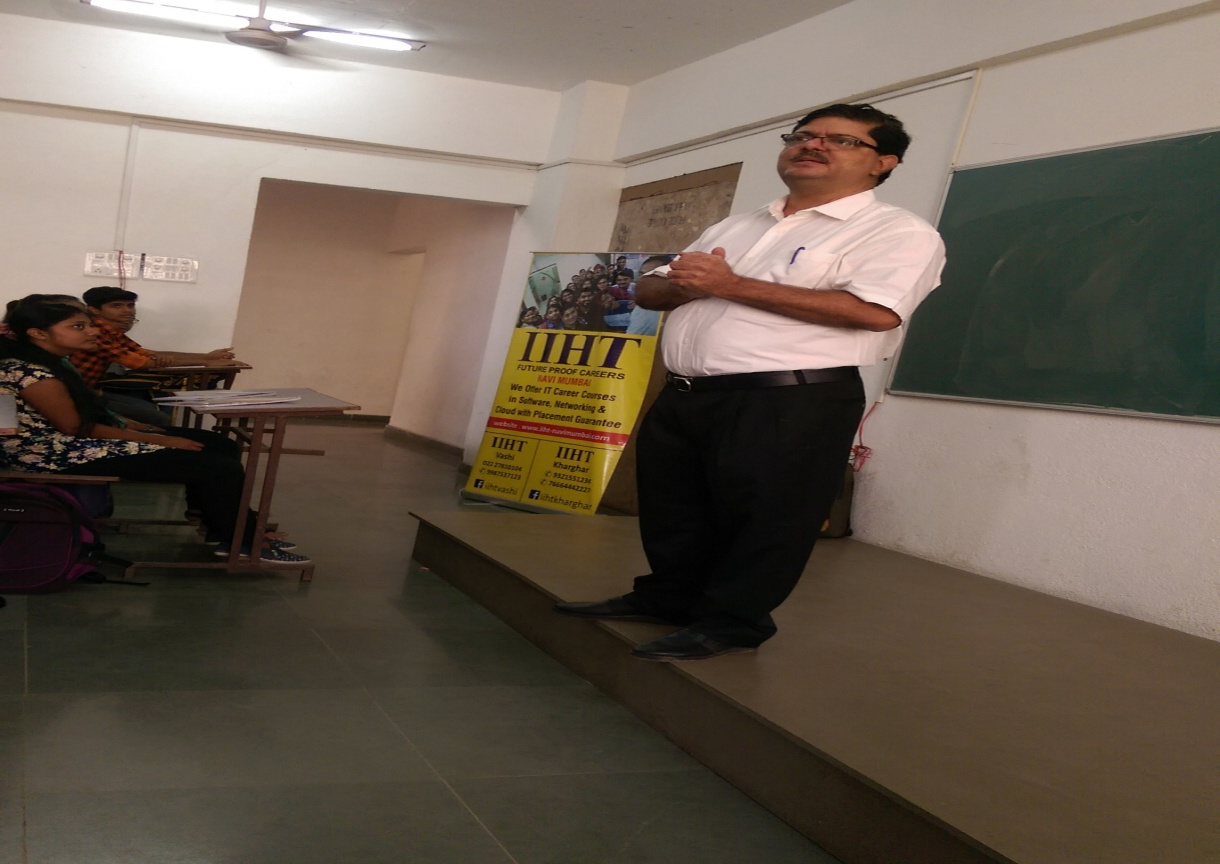
Poster Making Competition (Software Engineering & Testing )
Poster Making Competition aims for the students to use their knowledge, understand and awareness on different fields of software Engineering & testing.Increase the Intelligence in Posters.
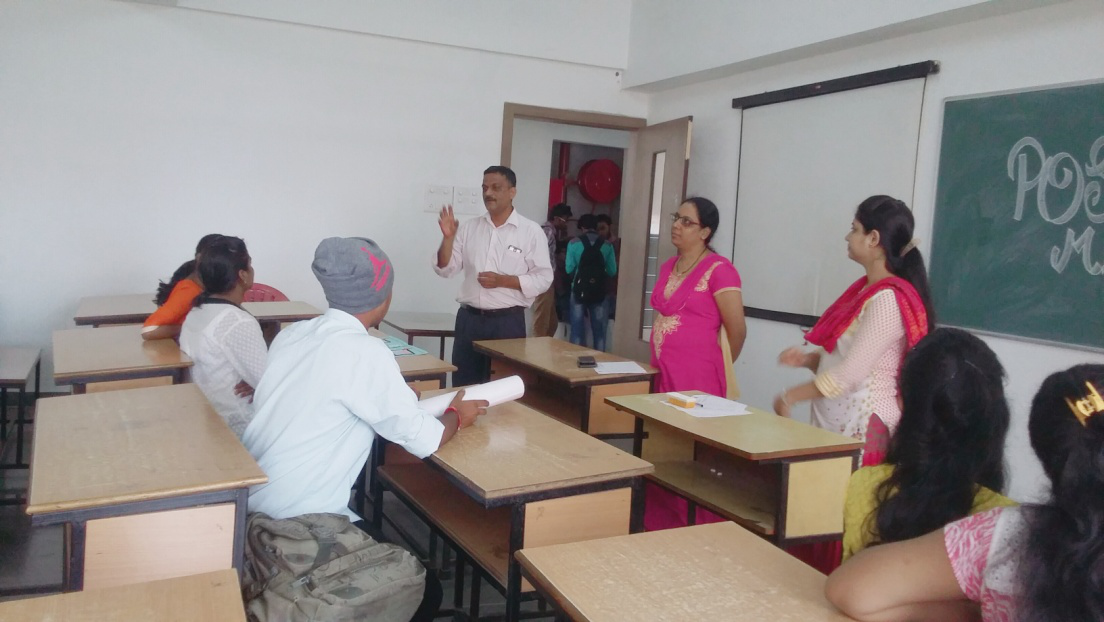
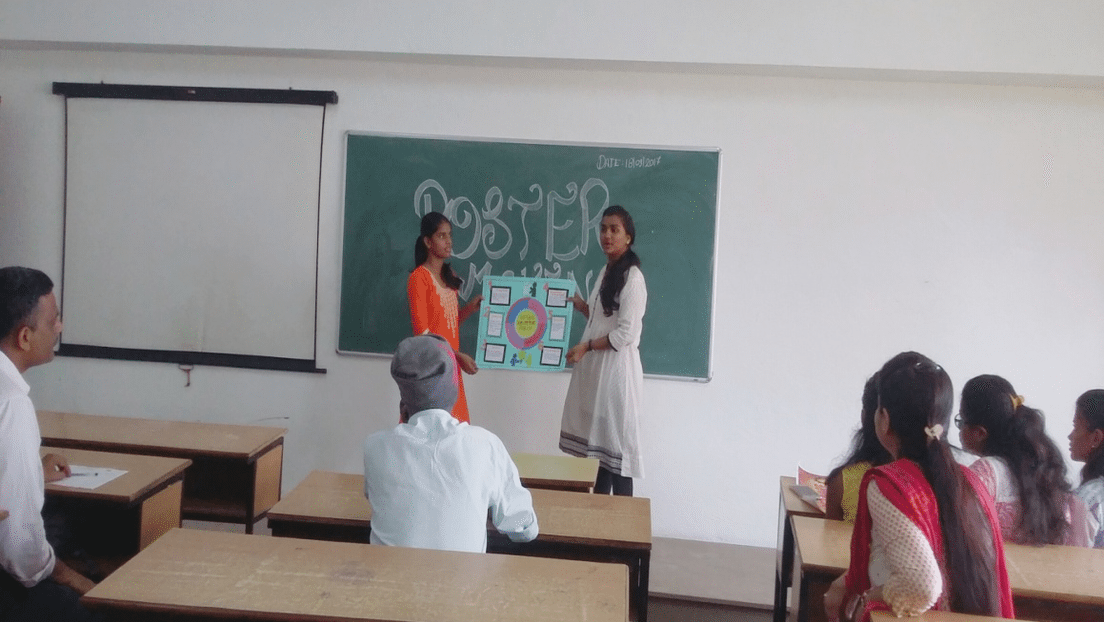
Quiz Event
This Activity helps the students to test their knowledge in various fields e.g. Current Affairs, Friends.
Students are aware about their strength and weakness in their interested field.
This Activity helps the student in various competitions out of the campus
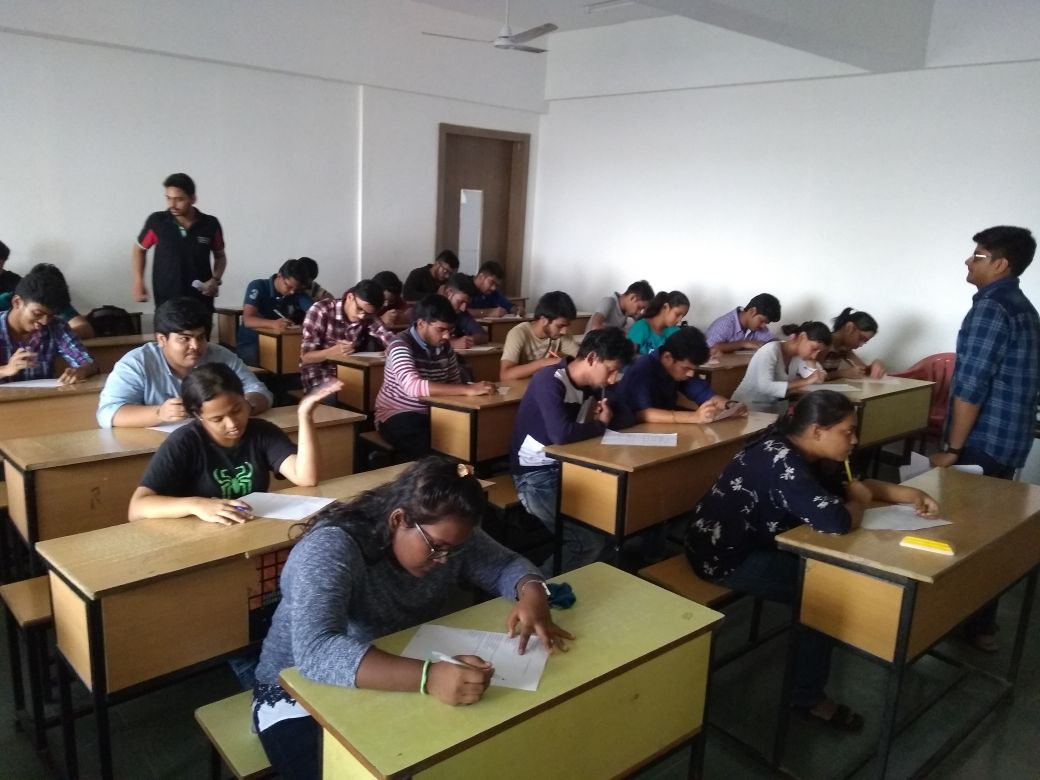
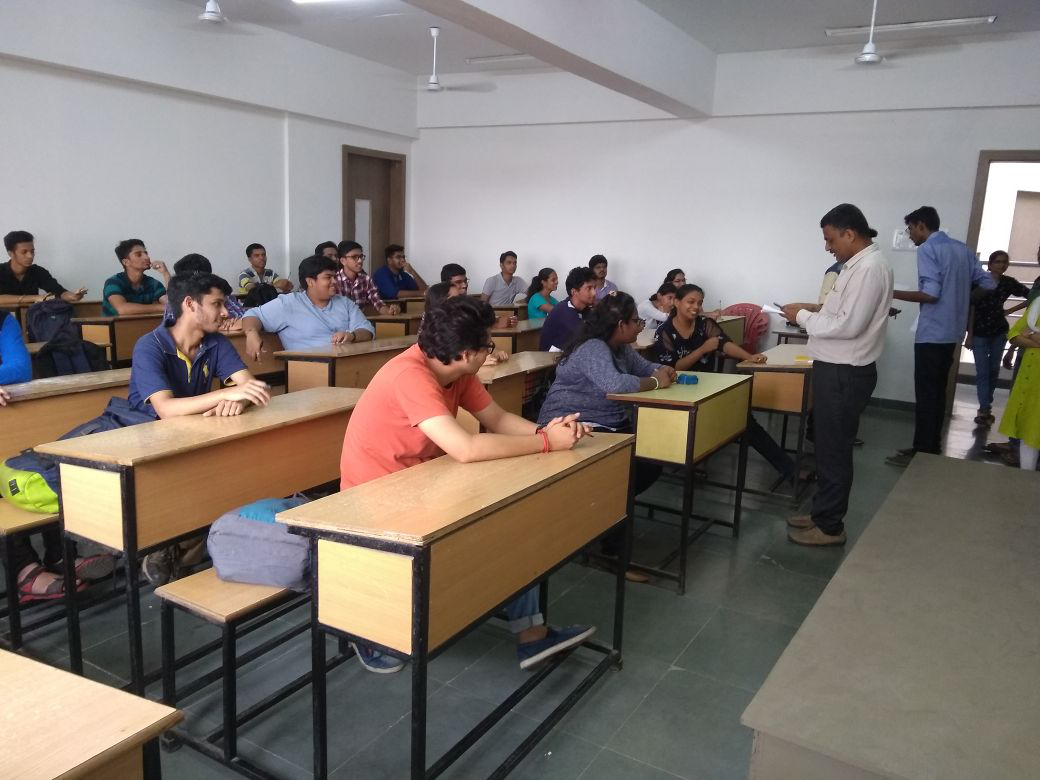
1. Lab Name: Software Engineering & Testing Lab
Location of Laboratory: 501
Area of Laboratory: 70 SQM
Laboratory Incharge: Mrs. Jaspreet Kaur
A Software Engineering & Testing Lab is a specialized facility for designing, developing, and testing software applications. Equipped with advanced development tools, testing frameworks, and automation software, the lab supports hands-on learning in software development life cycle (SDLC), quality assurance, and debugging techniques. It enables students to practice coding standards, perform unit and system testing, and explore software reliability, ensuring the creation of efficient and robust software solutions.

Laboratory Equipments:
Hardware: Lenovo Neo 50T, Gen3, 12th generation Intel core i5 12400,16gb Ram Win 11 pro OEM/ 512GB SSD,19’’ IncTFT, K/B, Mouse Printers, Internet, Networking Devices – Switches
Operating System: Windows 11, Ubuntu 22.04 LTS
Utilization of Laboratory: For S.E., T.E. & B.E. Comp
2. Lab Name: Programming Lab
Location of Laboratory: 503
Area of Laboratory: 70 SQM
Laboratory Incharge: Mrs, Vaishali Yeole
A Programming Lab is a dedicated facility for developing and testing software applications. Equipped with high-performance computers, integrated development environments (IDEs), and various programming tools, the lab supports learning and research in languages like C, C++, Java, Python, and more. It provides hands-on experience in coding, algorithm design, software development, and debugging, enabling students to build efficient and scalable solutions for real-world problems.
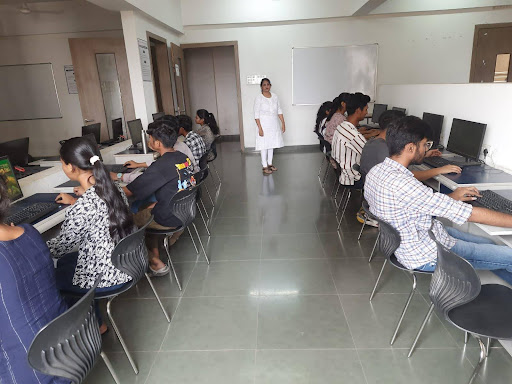
Laboratory Equipments:
Hardware: Lenovo Neo 50T, Gen3, 12th generation Intel core i5 12400,16gb Ram Win 11 pro OEM/ 512GB SSD,19’’ IncTFT, K/B, Mouse Printers, Internet, Networking Devices – Switches
Operating System: Windows 11, Ubuntu 22.04 LTS
Utilization of Laboratory: For S.E., T.E. & B.E. Comp
3. Lab Name: Advanced Computing Lab
Location of Laboratory: 504
Area of Laboratory: 70 SQM
Laboratory Incharge: Mrs, Revti Jadhav
An Advanced Computing Lab is a high-performance facility designed for research and development in cutting-edge computing technologies. Equipped with powerful servers, GPUs, cloud computing resources, and advanced software tools, the lab supports work in artificial intelligence, machine learning, high-performance computing, and distributed systems. It enables students and researchers to experiment with complex algorithms, parallel processing, and emerging computing paradigms, fostering innovation and real-world problem-solving.
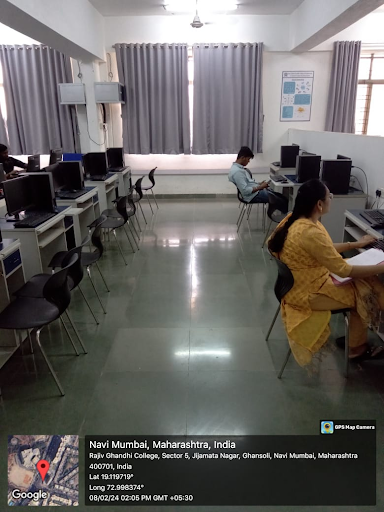
Laboratory Equipments:
Hardware: Lenovo Neo 50T, Gen3, 12th generation Intel core i5 12400,16gb Ram Win 11 pro OEM/ 512GB SSD,19’’ IncTFT, K/B, Mouse Printers, Internet, Networking Devices – Switches
Operating System: Windows 11, Ubuntu 22.04 LTS
Utilization of Laboratory: For S.E., T.E. & B.E. Comp
4. Lab Name: Network and Security Lab
Location of Laboratory: 505
Area of Laboratory: 67 SQM
Laboratory Incharge: Mrs, Sarita Khedikar
A Network and Security Lab is a specialized facility for studying, designing, and testing network infrastructures and cybersecurity solutions. Equipped with routers, switches, firewalls, intrusion detection systems, and security tools, the lab enables hands-on learning in network protocols, ethical hacking, encryption, and threat analysis. It prepares students for real-world challenges in securing and managing modern network environments while fostering research and innovation in cybersecurity.
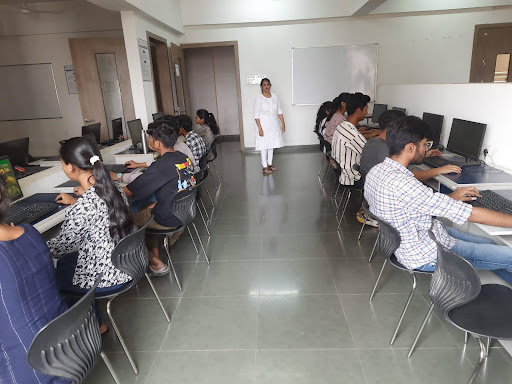
Laboratory Equipments:
Hardware: Lenovo Neo 50T, Gen3, 12th generation Intel core i5 12400,16gb Ram Win 11 pro OEM/ 512GB SSD,19’’ IncTFT, K/B, Mouse Printers, Internet, Networking Devices – Switches
Operating System: Windows 11, Ubuntu 22.04 LTS
Utilization of Laboratory: For S.E., T.E. & B.E. Comp
5. Lab Name: Data Science Lab
Location of Laboratory: 506
Area of Laboratory: 67 SQM
Laboratory Incharge: Mr, Selvamurugan Kasi
A Data Science Lab is a dedicated facility for students and researchers to analyze data, develop machine learning models, and explore big data technologies. Equipped with high-performance computing resources, data analytics tools, and AI frameworks, the lab supports research and practical applications in fields like predictive analytics, deep learning, and data-driven decision-making. It fosters innovation, hands-on learning, and interdisciplinary collaboration to solve real-world challenges using data science techniques

Laboratory Equipments:
Hardware:HP RCTO 280, Intel core i5 10400, 2.9 GHz, 8 GB RAM, 1 TB SATA HDD,18.5″ TFT Monitors,Printers ,Internet.
Operating System: Windows 10, Ubuntu 22.04 LTS
Utilization of Laboratory: For S.E., T.E. & B.E. Comp
6. Lab Name: Project Lab
Location of Laboratory: 507
Area of Laboratory: 75 SQM
Laboratory Incharge: Mr, Satish Kuchiwale
A Project Lab is a specialized workspace where students design, develop, and implement software and hardware-based projects. Equipped with high-performance computers, development boards, programming tools, and networking devices, the lab supports innovation in areas like embedded systems, artificial intelligence, cybersecurity, and software development. It fosters hands-on learning, collaboration, and research, enabling students to work on real-world applications and industry-relevant solutions.
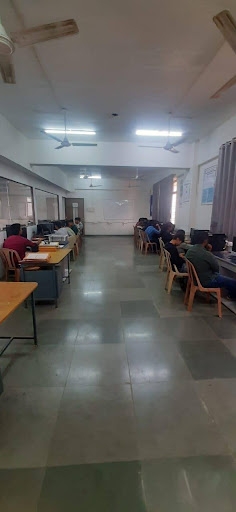
Laboratory Equipments:
Hardware:HP RCTO 280, Intel core i5 10400, 2.9 GHz, 8 GB RAM, 1 TB SATA HDD,18.5″ TFT Monitors,Printers ,Internet.
Operating System: Windows 10, Ubuntu 22.04 LTS
Utilization of Laboratory: For S.E., T.E. & B.E. Comp
| Date | Notice Descritpion | Link |
|---|---|---|
| 25/02/2025 | Collection of xerox copy of answer paper for Exam Nov/Dec 2024 | Click Here |
| 21/02/2025 | Eye donation Awarness session | Click Here |
| 21/02/2025 | Blood donation camp | Click Here |
| 20/02/2025 | Exam Form Submission and Fee Payment for K.T. Students | Click Here |
| 21/02/2025 | Carry on notice | Click Here |
| 30/09/2024 | Alumni activity notice | Click Here |
A.Y. 2023 – 2024 Odd
| Sr.No | Class | Sem | Subjects | Code | Facultiy Name | Link |
|---|---|---|---|---|---|---|
| 1 |
SE
|
III
|
Applied Mathematics-III | CSC301 | Prof. K.B Patil | https://classroom.google.com/u/1/c/NjE3MjMwNTE4NTEw |
| 2 | DISCRETE STRUCTURE AND GRAPH THEORY | CSC302 | Prof. Deepti Chandran | https://classroom.google.com/c/NjE1OTg2NDUxNDQ3?cjc=v4g5qpk | ||
| 3 | Data Structure | CSC303 | Prof. Satish Kuchiwale | https://classroom.google.com/c/NjE2NTYxMjM4ODYy?cjc=xhs7o7f | ||
| 4 | Digital Logic & Computer Architecture |
CSC304 | Prof. Revti Jadhav | https://classroom.google.com/c/NjkxMjE1NDYyNjg0?cjc=7nn4mkl | ||
| 5 | Computer Graphic | CSC305 | Prof. Shradha Chaudhari | |||
| 6 | Data Structure Lab | CSL301 | Prof. Satish kuchiwale | https://classroom.google.com/c/NjE2NTYxMjM4ODYy?cjc=xhs7o7f | ||
| 7 | Digital Logic & Computer Architecture Lab |
CSL302 | Prof Revti Jadhav | https://classroom.google.com/c/NjkxMjE1NDYyNjg0?cjc=7nn4mkl | ||
| 8 | Computer Graphics Lab | CSL303 | Prof Shradha Chaudhari | |||
| 9 | Skill base Lab course : Object Oriented Programming with Java |
CSL 304 | Prof. Selvamurgan Kasi | https://classroom.google.com/c/NjE1OTM5MTA4OTE0?cjc=jtpvsce | ||
| 10 | Mini Project – 1 A | CSM301 | Prof Shradha Chaudhari | |||
| 11 |
TE
|
v
|
TCS | CSC501 | Prof Vaishali Yeole | https://classroom.google.com/c/NTIzMTc5MDA1OTkx?cjc=5sia3o6 |
| 12 | Software Engineering | CSC502 | Prof Sarita Khedikar | Taken By Prof Tularam Bansod | ||
| 13 | Computer Network | CSC503 | Dr.K.T. Patil | https://classroom.google.com/c/NjE3MjA2MzE4NjU3 | ||
| 14 | Dataware housing & Mining |
CSC504 | Prof. Satish Kuchiwale | https://classroom.google.com/c/NTIzMTE0MTY2NjY3?cjc=mzsoe3v | ||
| 15 | Internet Programming | CSDLO5012 | Prof. Shradha Chaudhari | |||
| 16 | Software Engineering Lab | CSL501 | Prof. Sarita khedikar | Taken by Prof. Tularam BAnsod | ||
| 17 | Computer Network Lab | CSL 502 | Dr. K .T. Patil | https://classroom.google.com/c/Njk4MzcyMDIxMDA1?cjc=cgcdmou | ||
| 18 | Dataware housing & Mining Lab |
CSL 503 | Prof. Shraddha Chaudhari | |||
| 19 | Business Comm. & Ethics | CSL 504 | Prof. Jaspreet Kaur | https://classroom.google.com/c/NjE2MjY0NjQ4NzUx | ||
| 20 | Mini Project : 2A | CSM501 | Prof. Vaishali Yeole | https://classroom.google.com/c/NzAzOTAwMTEyNTE3?cjc=kmlhgmk | ||
| 21 |
BE
|
VII
|
Machine Learning | CSC701 | Dr. Shankar Patil | https://classroom.google.com/c/NjE2NTY1OTAxMjY3 |
| 22 | Big Data Analytics | CSC702 | Prof. Vaishali Yeole | https://classroom.google.com/c/NjE2OTM3MDMzMzU3?cjc=hkzzr5g | ||
| 23 | Department Level Optional Course-3 (NLP) |
CSDO701 | Prof. Deepti Chandran | https://classroom.google.com/c/NjE1OTM4MTIwMzIx?cjc=p342owz | ||
| 24 | Department Level Optional Course-4 (Block chain) |
CSDO7022 | Prof. Selvamurugan Kasi | https://classroom.google.com/c/NjE1OTM3OTIyOTM5?cjc=nu3eync | ||
| 25 | Institute Level Optional Course-1 (Cyber laws and Security) |
ILO7016 | Prof. Jaspreet Kaur | https://classroom.google.com/c/NjE2NTU2OTM4OTE3 | ||
| 27 | Machine Learning Lab | CSL701 | Dr. Shankar Patil | |||
| 28 | Big Data Analytics Lab | CSL702 | Prof. Vaishali yeole | https://classroom.google.com/c/NjE2OTM3MDMzMzU3?cjc=hkzzr5g | ||
| 29 | Department Level Optional Course-3 (NLP Lab) |
CSDC 7013 |
Prof. Deepti Chandran | https://classroom.google.com/c/NjE1OTM4MTIwMzIx?cjc=p342owz | ||
| 30 | Department Level Optional Course-4 (Blockchain Lab) |
CSDL7022 7022 |
Prof. Selvamurugan Kasi | https://classroom.google.com/c/NjE1OTM4NzgyODI1?cjc=zkk4z5h | ||
| 31 | Major Project 1 | CSP170 | Prof. Deepti Chandran | https://classroom.google.com/c/NjE2MTA5ODg2MzY4?cjc=hx635yk |
A.Y. 2023 – 2024 Even
| Sr.No | Class | Sem | Subjects | Code | Facultiy Name | Link |
|---|---|---|---|---|---|---|
| 1 |
SE
|
IV
|
Engineering Mathematics-IV | CSC401 | Prof. K.B.Patil | https://classroom.google.com/u/1/c/NjQ3ODA5NzkzNDg2 |
| 2 | Analysis of Algorithms | CSC402 | Prof. Sarita Khedikar | https://classroom.google.com/c/NjQ3Njg0NzA1Njk2 | ||
| 3 | Database Management System | CSC403 | Prof. Shradha Chaudhari | |||
| 4 | Operating System | CSC404 | Prof Puja Vakhare | |||
| 5 | Microprocessor | CSC405 | Prof Selvamurugan kasi | https://classroom.google.com/c/NjQ2ODE2ODI5ODI0?cjc=pwbyjb3 | ||
| 6 | Analysis of Algorithms Lab | CSL401 | Prof Sarita khedikar | https://classroom.google.com/c/NjQ3Njg0NzA1Njk2 | ||
| 7 | Database Management system Lab | CSL402 | Prof. Shradha Chaudhari | |||
| 8 | Operating System Lab | CSL403 | Prof. Puja Vakhare | |||
| 9 | Microprocessor Lab | CSL 404 | Prof. Selvamurugan Kasi | https://classroom.google.com/c/NjUzMjQ4MTIyNzY2?cjc=y3t5mwj | ||
| 10 | Skill Base Lab Course: Python Programming |
CSL 405 | Prof. Deepti chandran/ Prof. Puja Vakhare | https://classroom.google.com/c/NjU4MjgzMTg1ODcx?cjc=xgn5kr5 | ||
| Mini Project B | CSM401 | Prof. Shradha Chaudhari | ||||
| 11 |
TE
|
VI
|
System Programming and Compiler Construction |
CSC601 | Prof. Satish Kuchiwale | https://classroom.google.com/c/NjQ4NDA2NzM0NTYy?cjc=5cby4gp |
| 12 | Cryptography & System Security | CSC602 | Prof. vaishali Yeole | https://classroom.google.com/c/NjY1MzAwODM5OTQy?cjc=beaznoa | ||
| 13 | Mobile Computing | CSC603 | Prof. Revti Jadhav | https://classroom.google.com/c/NjQ2ODg0NDU5ODEz?cjc=magfxre | ||
| 14 | Artificial Intelligence | CSC604 | Dr. Shankar Patil | https://classroom.google.com/w/NjE2NTY0NTYxNTg5/t/all | ||
| 15 | Internet of Things | CSDLO6011 | Prof. Jaspreet Kaur | https://classroom.google.com/c/NjU3NTAxNzQwMzIz | ||
| 16 | System Programming and Compiler Construction Lab |
CSL601 | Prof. Satish Kuchiwale | https://classroom.google.com/c/NjQ4NDA2NzM0NTYy?cjc=5cby4gp | ||
| 17 | Cryptography & System Security Lab | CSL 602 | Prof Sarita Khedikar | https://classroom.google.com/c/NjU3NTI2MDk1OTg4 | ||
| 18 | Mobile Computing Lab | CSL 603 | Prof. Revti Jadhav | https://classroom.google.com/c/NjUzNTI4NzUwODc4?cjc=b3xk6dv | ||
| 19 | Artificial Intelligence Lab | CSL 604 | Dr. Shankar Patil | |||
| 20 | Cloud Computing | CSL605 | Prof. Vaishali Yeole/ Prof. Puja Vakhare | https://classroom.google.com/c/NjYwMDYwMDEyNjEx?cjc=eqr6pqm | ||
| 21 | Mini Project 2B | CSM601 | Prof Vaishali Yeole | https://classroom.google.com/c/NzM0OTM1NDMyODU1?cjc=7jym6sz | ||
| 23 |
BE
|
VIII
|
Distributed Computing | CSC801 | Dr. K.T. Patil | https://classroom.google.com/c/NjQ4MTgyNDA5NzM5 |
| 24 | Applied Data Science | CSDC8013 | Prof. Deepti Chandran | https://classroom.google.com/c/NjQ2ODE2NzAwOTE0?cjc=iq6q4n7 | ||
| 25 | Social Media Analytics | CSDC8023 | Prof. Jaspreet Kaur | https://classroom.google.com/c/NjUzODkxOTgwODQ0 | ||
| 26 | Environmental Management | ILO8029 | Prof. Revti Jadhav | https://classroom.google.com/c/NjUzNTI2MjcxNDkz?cjc=6ujpjct | ||
| 27 | Distributed Computing Lab | CSL801.1 | Dr. K.T. Patil/ Prof. Shradha C | |||
| 28 | Applied Data Science Lab | CSL8023 | Prof. Deepti jadhav | https://classroom.google.com/c/NjQ2ODE2NzAwOTE0?cjc=iq6q4n7 | ||
| 29 | Social Media Analytics Lab | CSDL8023 | Prof. Jaspreet Kaur | https://classroom.google.com/c/NjUzODkxOTgwODQ0 | ||
| 30 | Major Project 2 | CSP801 | Prof. Deepti Chandran | https://classroom.google.com/c/NjE2MTA5ODg2MzY4?cjc=hx635yk |
Innovations by the Faculty in Teaching and Learning
In modern outcome-based education (OBE), innovative teaching and learning methods focus on enhancing student engagement, fostering creativity, and making learning more effective and interesting. Innovative teaching and learning methods are transforming education by making it more engaging, student-centred, and adaptable to modern needs.
SIGCE keeps on adapting to innovative strategies, tools and technologies in critical circumstances like Pandemic and have ensured the effective conduct of Teaching Learning.
Goal: The objective of teaching learning process (TLP) at SIGCE is to develop knowledge and skills. The institute has a student centric approach where the student’s requirements are taken into consideration to cater their needs through the innovative TLP. Academic conduct during the semester not only enables the students to clear high stake examinations required to get the university degree but also prepares them with professional knowledge, employability and life-long learning skills.
Usage of Technology in pandemic: The practices in TLP have taken a very new form during the pandemic. Before the pandemic the TLP took place in the traditional classrooms and laboratories. During the pandemic the traditional setup of normal classroom teaching was forced to change to online mode.
Keeping the changing environment in mind, faculties have adopted the use of various tools and techniques to make the process of teaching and learning more interactive and effective. (Online Teaching with Google Meet, use of Google Classroom to mention a few)
Innovations in Teaching Learning Process
| Objectives | Outcomes |
|---|---|
| Publishing Acdemic Calenderbefore the beginning of semester | Knowledge of academic and co-curricular activities to all Faculty-students. |
| Partial course file with lesson plan approval by PAQIC before commencement of academic session | Lesson plan, CO target etc readiness checking and incorporating suggestions, if any, given by PAQIC ensures proper planning of course delivery. |
| Uploading Lessonplans at the beginning of sessions on Google classrom | Students have clear knowledge of teaching plan with content delivery methods and schedule and prepare themselves accordingly in advance. |
| Monthly Review of Syllabus coverage and adherance to academic calender | Continuous monitoring of planned activities and lessonplan |
| Reserving common time slot in time table for ‘Other Activity’ | Ensured avalabilty of common time for all students for conducting other actvities like club activities, seminars, workshops so students participation without miising academics has become possible |
| Reserved ‘Remedial class” time slot in Time table | Remedial / extra lecture planning which helped teachers to cover the syllabus and provide extra teaching to weak students. |
Innovative Teaching Techniques
| Sr No | Innovative Teaching Learning Techniques | Activities | Objective | Outcome |
|---|---|---|---|---|
| 1 | Use of ICT | Teaching Learning Process (TLP) conduct | To make effective use of ICT for Teaching Learning process | Conduct of TLP with integration of different tools like Smart board, Projectors and Internet connectivity for interactive learning
Conduct of online TLP with use and integration of different online platforms |
| Google Classroom creation | To effectively share resources with students for knowledge enhancement | Google Classrooms to distribute and grade subject assignments in a paperless way. E-Platform to provide study material | ||
| 2 | Instruction delivery &
Instruction method |
Co-teaching with industry / academic experts | To enhance students learning
through industry experts |
Industry experts are invited to conduct sessions for encouraging students and creating awareness about latest trends and techniques related to the subject. |
| Blended learning | To provide students with ease of teaching learning process through pandemic | Blended Learning is a combination of learning methods that incorporate multiple teaching methodologies which includes e-learning as well as traditional face-to-face learning. A blended learning approach ensures that the student is engaged effectively. | ||
| Flipped classroom | To enable students to have an active learning environment | The flipped classroom inverts the traditional learning experience. Lectures are shared outside of class time for individual review as homework, and classroom time is reserved for class discussion and interactive projects. This helps in making the classroom an active learning environment & enables student to learn at their own pace. | ||
| Group activity experiments. | To enhance student’s knowledge through collaborative learning | students are asked to form a group of 2-3 within the batch for performing the case study/ Mini Project/Presentation as the subject. | ||
| Brainstorming | To provide diverse perspectives for a topic | The subject in-charges begins a brainstorming session by posing a question or a problem, or by introducing a topic. Students then express possible answers, relevant solutions and ideas. | ||
| 3 | Inclusive classroom |
|
To enhance multidisciplinary learning for overall development of the students | In Activity Based Learning (ABL) students are encouraged to participate actively in different activities either individually or in a group with their own learning experience through practical activities.
The concept of Project Based Learning (PBL) for implementation of mini projects using the technology learnt under Professional Skills (PS) was introduced as a group learning activity, usually the technology/tools learnt in PS is used to implement in PBL Introduction of the Research Based Learning (RBL) in the curriculum was done to encourage students to take up minor projects in the domain of interest by forming a group. Internship is conducted to strengthen technical knowledge of the students in various domains. Domains are identified as per student’s interest and curriculum. Employability Skill Development (ESD) is implemented to develop student’s skill keeping industry requirements. External Industry experts are conducting training on identified skills. |
Inclusive classroom
| Project Based Learning | Activity Based Learning | Experimental Learning | Teaching Enhanced Blended Learning |
|---|---|---|---|
| Industry Support Projects | Quiz Competition | Technical Festival | NPTEL |
| Research Projects | Seminar | Workshops | Google Classroom |
| Prototype / Development | Paper/ Poster presentation | Value added Program | Social media |
| Project Internship | Brainstorming sessions | Industrial Visit | Simulation Tools |
| Idea Demonstration | Hackathon | Internship | Virtual Labs |
| Mini / Major Projects | Role Play | Industry based training |
|
|
|
Flipped Classroom | Peer/ Collaborative Teaching | |
| Debugging | |||
| Mind Map |
| Description | Link |
|---|---|
| Innovation in Teaching Learning Process – A. Y. 2024-25 Odd Sem | Link |
| Innovation in Teaching Learning Process – A. Y. 2023-24 Even Sem | Link |
| Innovation in Teaching Learning Process – A. Y. 2023-24 Odd Sem | Link |
